What The Markets Are Expecting From Thursday's ECB Interest Rate Decision
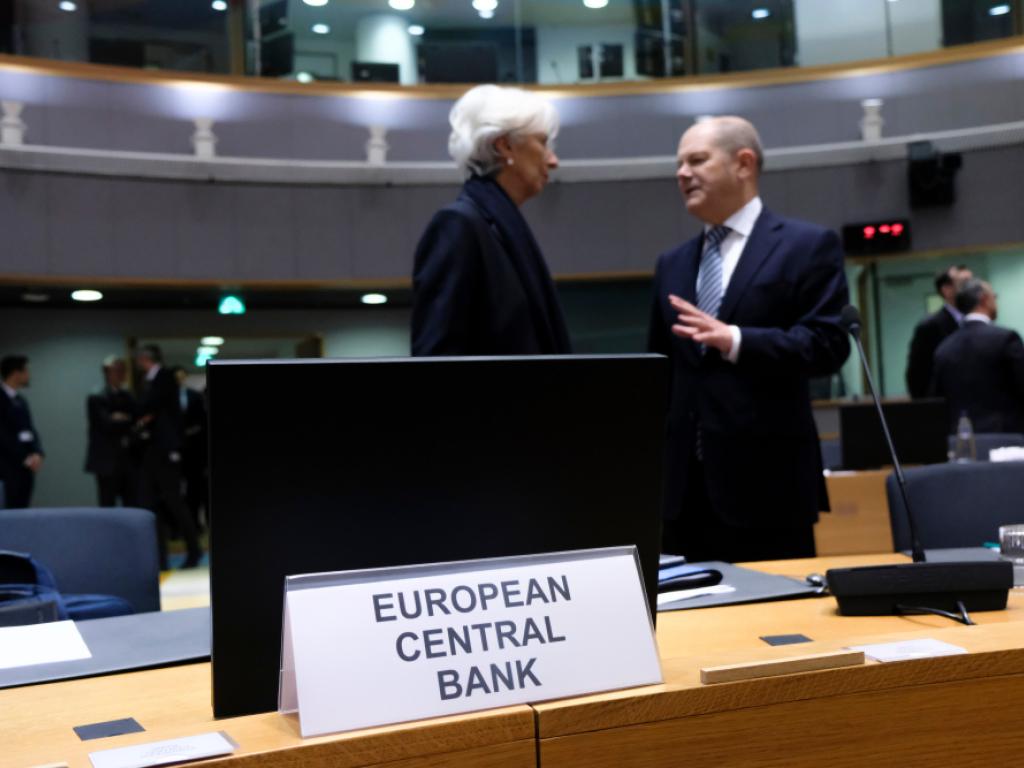
Markets are eagerly awaiting the European Central Bank's policy meeting on Thursday, March 15, with officials expected to hike interest rates by at least 25 basis points (bps), while a greater half-point rise remains possible.
The likelihood of a 50bps hike has substantially decreased in recent days due to persistent concerns to financial stability following the collapse of Silicon Valley Bank and the turbulence in the European banking sector following Credit Suisse Group AG's (NYSE:CS) plunge.
Related Link: S&P 500 Shoots Higher Into The Close: Here's Why
25 Or 50 Basis Points? Former ECB Vice President Vitor Constancio stated on Twitter Wednesday the ECB should raise interest rates by no more than 25 basis points, adding that central banks should not ignore market signals and the likelihood of a recession.
Giles Coghlan, chief market analyst, consulting for HYCM, said: “The focus has moved from uncertainty over the path of rates to risk concerns. European Central Bank (ECB) officials are reportedly contacting lenders under its supervision to ask about their exposure to Credit Suisse.
“The worry here is about contagion. Europe may have avoided significant fallout from the SVB crisis, but it may have its own crisis with Credit Suisse. Add to this geo-political fears, worries over a Fed hard landing, uncertainty over the ECB meeting and you have a wall of worry.”
Some European banks are still maintaining the call for a 50bps move. According to Banco Bilbao Vizcaya Argentaria SA (NYSE:BBVA) “there is a clear base case for 50bps as the ECB will want to fulfill what it said in January. Besides, they will probably defend the soundness of the European banking system, stating it is much stronger than in 2008”.
BNP Paribas SA (OTC:BNPQY) also called for a 50bps hike given the elevated inflation backdrop, but now expects vaguer language about future steps given the latest financial developments.
Overall, while doves at the ECB are anticipated to slow the pace of hikes given the recent negative developments in the European banking sectors, hawkish members such as Robert Holzmann and Joachim Nagel are likely to emphasize recent data that has reinforced anxieties about inflationary pressures.
Eurostat revealed earlier this month the Eurozone's core inflation rate jumped to a new record high of 5.6% in February 2023, compared to 5.3% in January and market predictions of 5.3%.
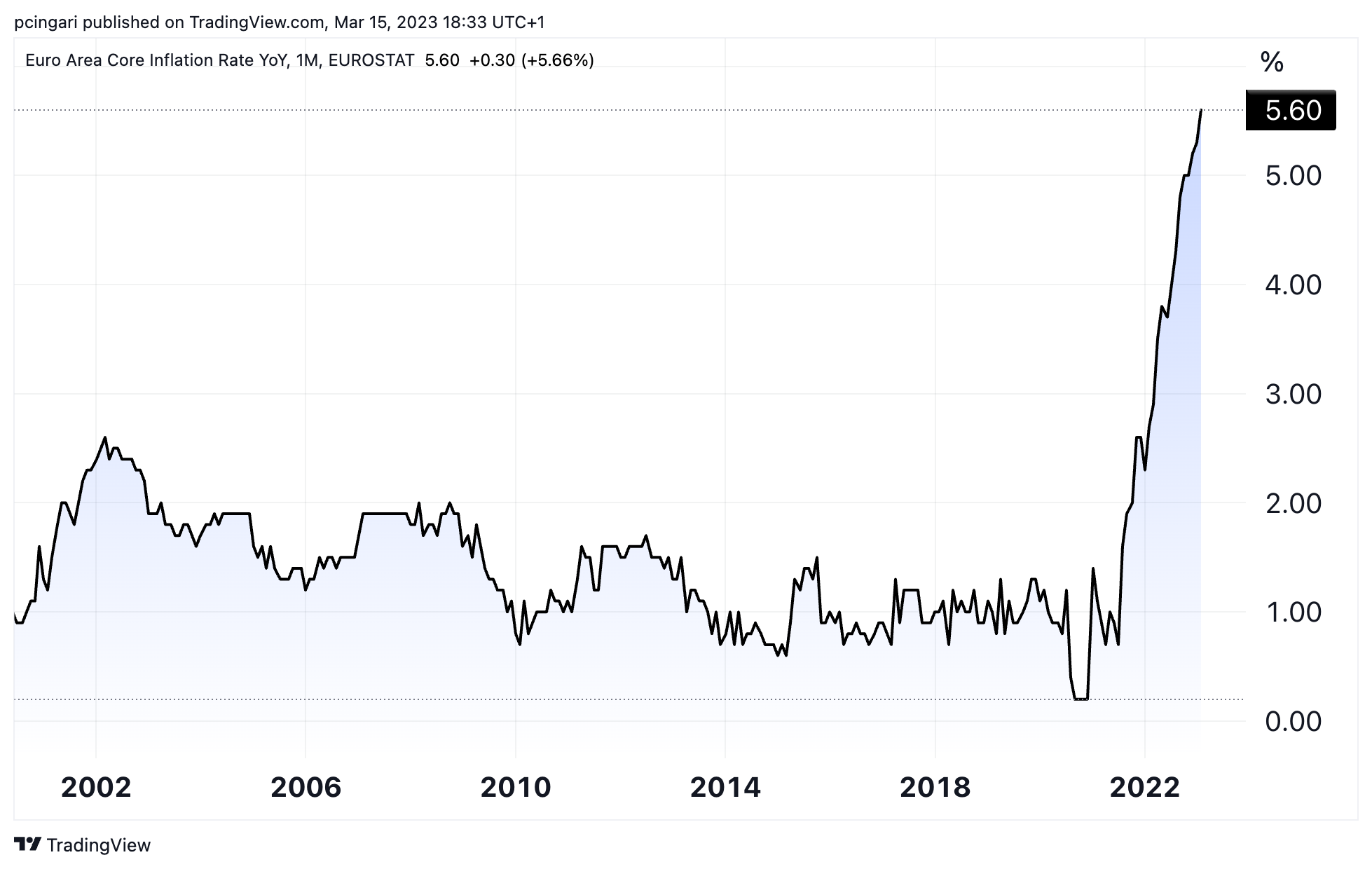 Chart: TradingView
Chart: TradingView
Where May European Assets Go? Given the recent wild price movements in European assets, even a hike of 50 basis points is unlikely to significantly alter market sentiment until the banking sector contagion risk subsides.
Wednesday was a day of carnage for European stocks. Nearly every name in the financial industry has been negatively impacted by Credit Suisse's dramatic sell-off as investors feared a contagion effect.
The iShares MSCI Europe ETF (BATS:EZU) fell roughly 5% on the day and is down 9% from its 2023 highs. Technically, EZU is currently testing the support of its 100-day moving average, a significant level that it has held since early November 2022.
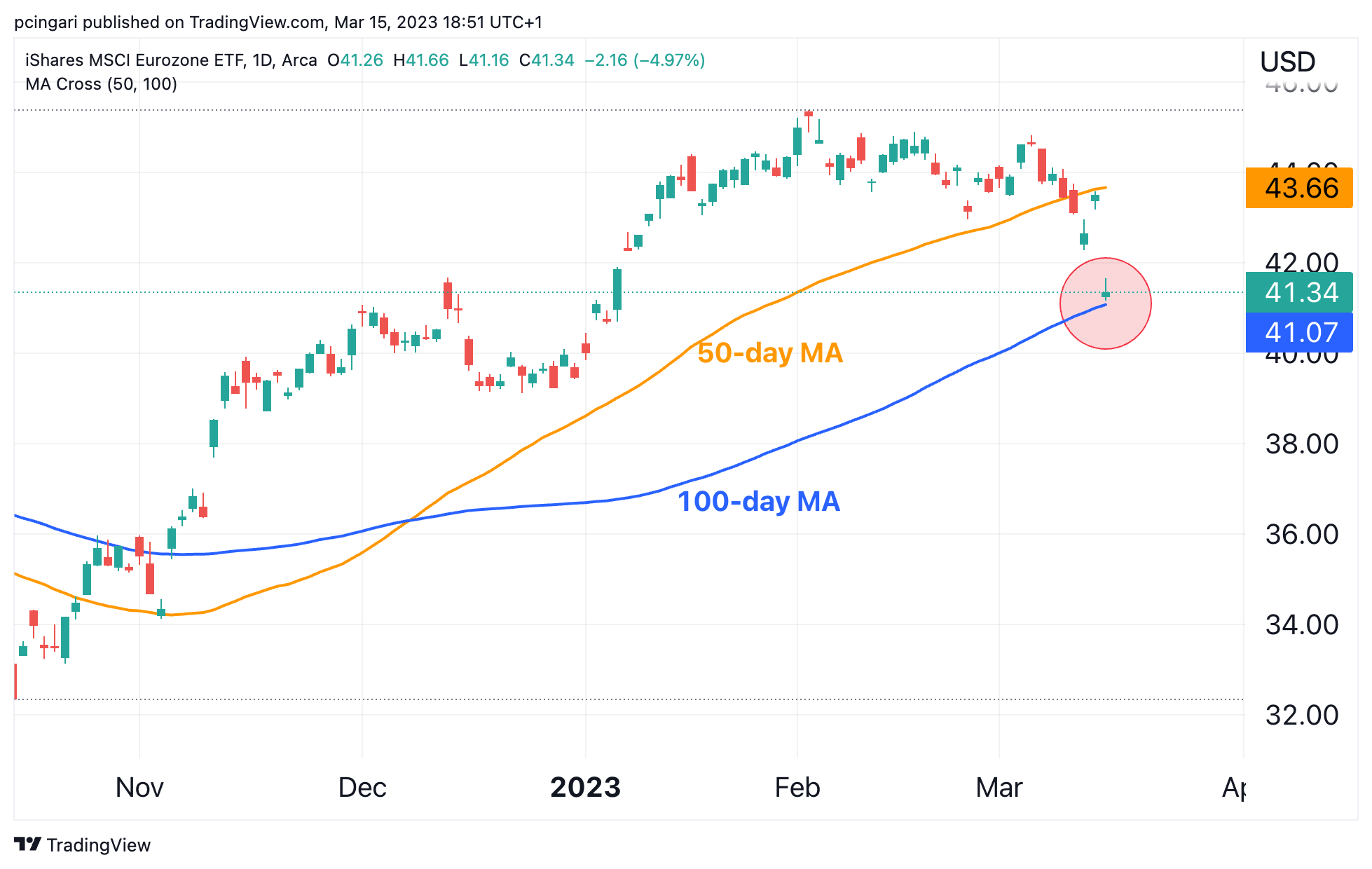 Chart: TradingView
Chart: TradingView
The iShares EURO STOXX Banks 30-15 UCITS ETF dropped as much as 8.6%, retracing to early 2023 levels.
Among the most-capitalized European banking stocks, the heaviest losses were recorded in BNP Paribas SA, down 8.9%; ING Groep NV (NYSE:ING), down 8.67%; Deutsche Bank AG (NYSE:DB), down 9.25%; Banco Bilbao Vizcaya Argentaria SA, down 9.6%; Barclays PLC (NYSE:BCS), down 9.09%;
Unicredito SPA Unsponsored Italy ADR
(OTC:UNCRY), down 7.09%; and UBS Group AG (NYSE:UBS), down 6.3%.
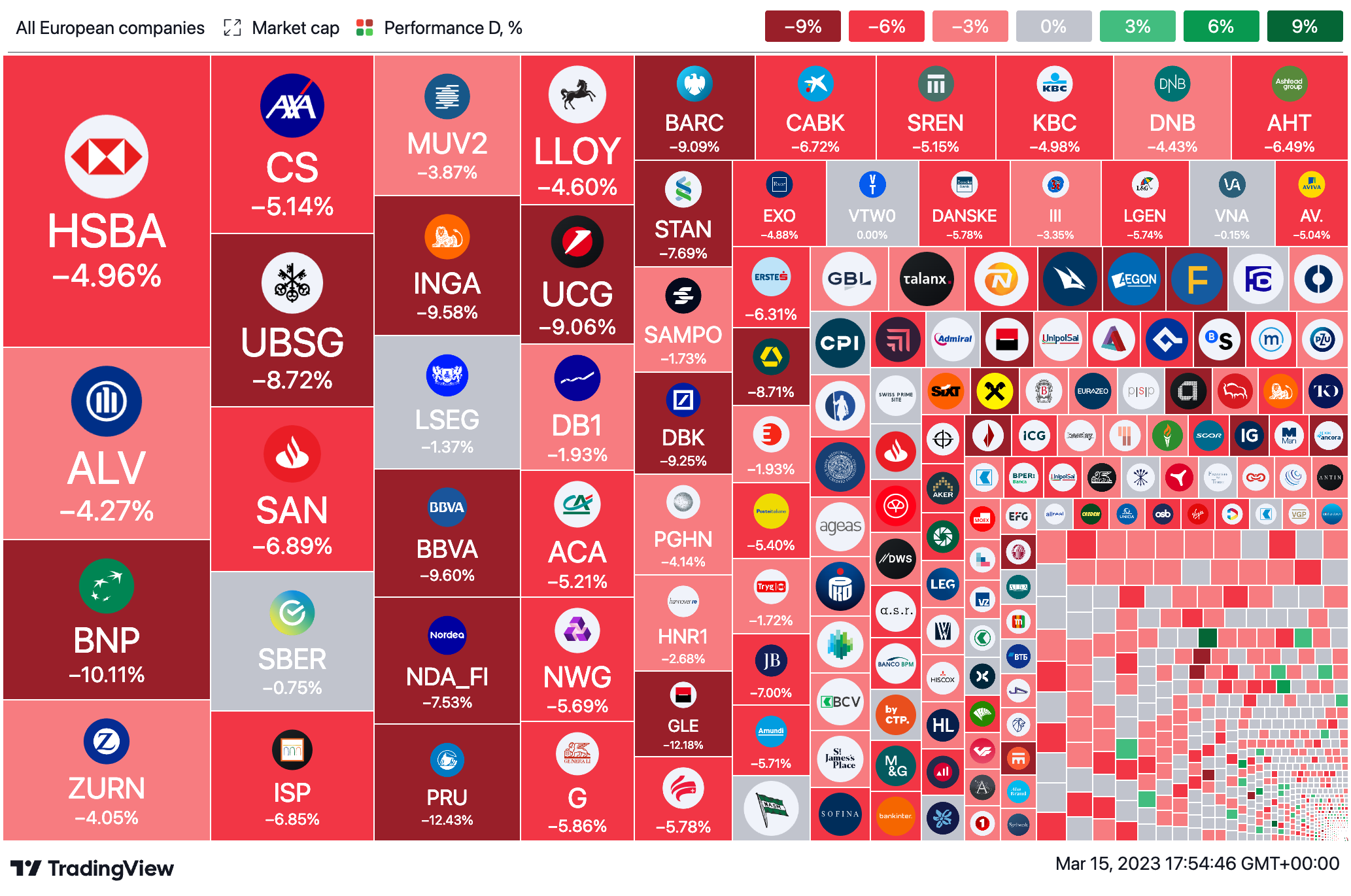 European banking stocks: Price performance on March 15, 2022. Chart: TradingView
European banking stocks: Price performance on March 15, 2022. Chart: TradingView
The euro was not immune to the broader European market sell-off. The EUR/USD pair dropped 1.6% to 1.055, posting its worst daily drop since the Covid-19 sell-off in March 2020.
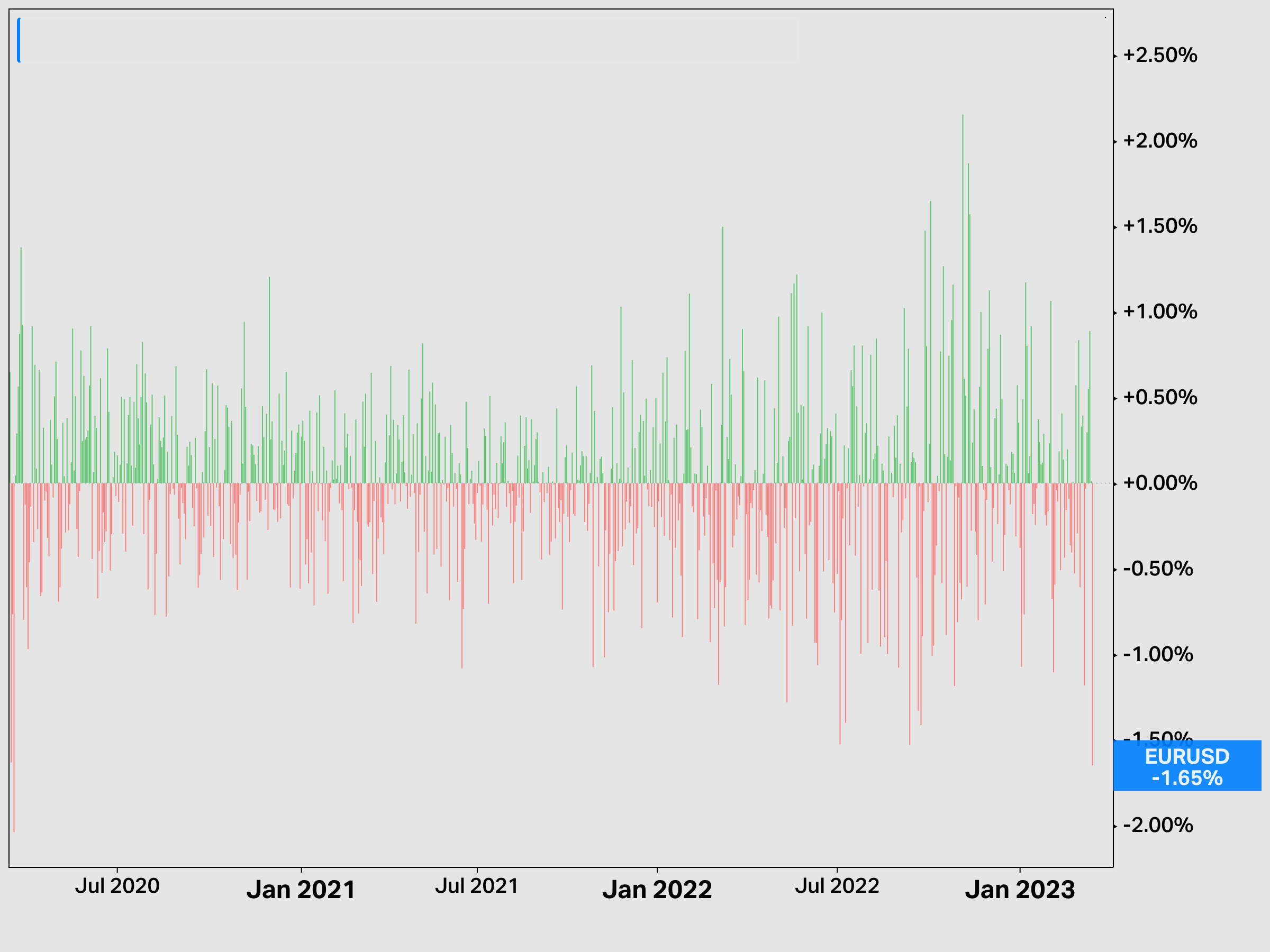 Chart: Koyfin
Chart: Koyfin
Photo via Shutterstock.